Seidu Mohammad and Razak Iyal met at a bus station in Minneapolis recently and, after a brief conversation, realized they were both headed to Canada.The Ghanaian men boarded a bus to Grand Forks, North Dakota, and then hailed a cab, each paying $200 to get to the US-Canada border.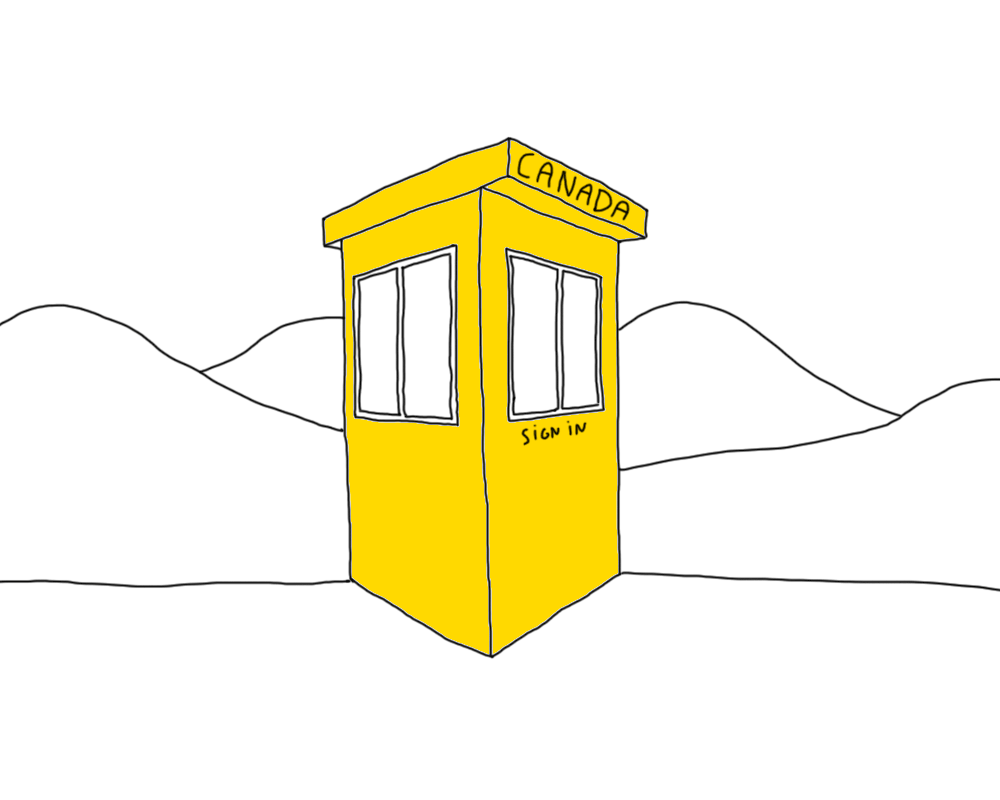 Around midnight, after about a 20-minute ride, the cab driver stopped and told the men, whose asylum requests were denied in the US: “This is Canada.”Then he took their money, and left them shivering in the -18 degree cold.And there began their perilous journey, trudging through waist-deep snow that blanketed the farmlands near the Manitoba border, much like hundreds of other refugee claimants who crossed into Canada illegally.Iyal had on a jacket and a hoodie, but Mohammad had nothing to cover his head — his eyes nearly froze shut, and he was forced to follow in his friend’s footsteps, unable to see ahead of him.After nearly seven hours of walking, the men finally found a highway near the town of Emerson, Manitoba, where they stopped and tried for another three hours to flag down a car.
Around midnight, after about a 20-minute ride, the cab driver stopped and told the men, whose asylum requests were denied in the US: “This is Canada.”Then he took their money, and left them shivering in the -18 degree cold.And there began their perilous journey, trudging through waist-deep snow that blanketed the farmlands near the Manitoba border, much like hundreds of other refugee claimants who crossed into Canada illegally.Iyal had on a jacket and a hoodie, but Mohammad had nothing to cover his head — his eyes nearly froze shut, and he was forced to follow in his friend’s footsteps, unable to see ahead of him.After nearly seven hours of walking, the men finally found a highway near the town of Emerson, Manitoba, where they stopped and tried for another three hours to flag down a car.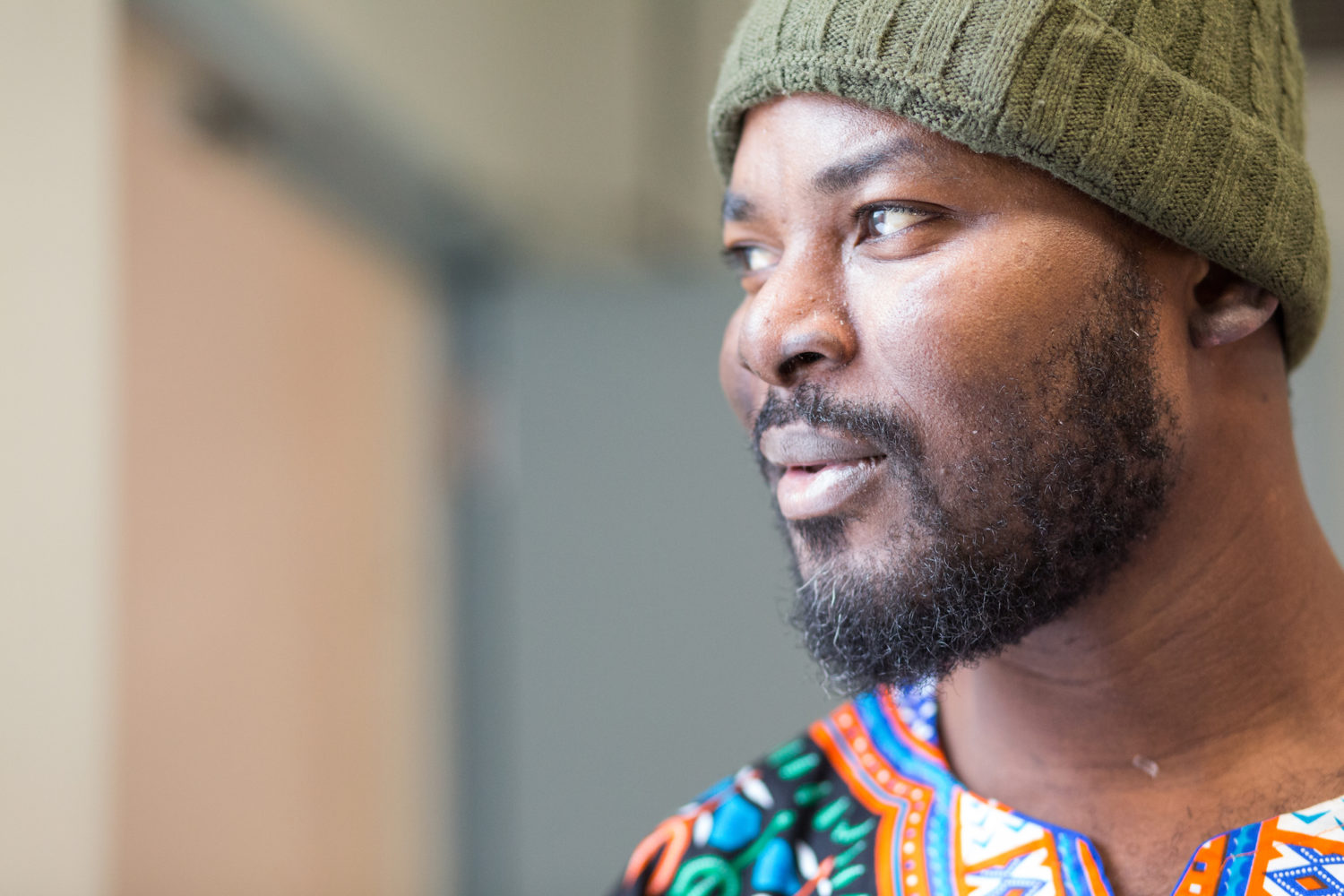 “Nobody wanted to stop,” recalled Iyal, in a phone interview from a Winnipeg hospital, where the two are recovering. “We decided to stand, and we were standing there for three hours.”After they’d spent their entire night outside, a truck driver noticed the men on the side of the road and called 911.Mohammad, whose hands are now fully covered in bandages, is expecting to lose all of his fingers and a toe to frostbite, while Iyal is waiting to hear more from his doctors about whether or not he’ll make a full recovery.Mohammad had fled Ghana for San Diego in 2015, in fear for his life because of his sexual orientation. But after being detained for about a year by immigration authorities, an American judge dismissed his case last December and ordered him deported.Razak, who declined to go into specifics about the reason behind his refugee claim, said he’d been detained for two years before a judge also ordered his deportation back to Ghana, where he believes he’ll be killed.Like many others, both Iyal and Mohammad chose to avoid a designated port of entry and instead entered the country illegally in order to avoid being sent back into the US, where they’d likely be thrown into detention again before being deported.
“Nobody wanted to stop,” recalled Iyal, in a phone interview from a Winnipeg hospital, where the two are recovering. “We decided to stand, and we were standing there for three hours.”After they’d spent their entire night outside, a truck driver noticed the men on the side of the road and called 911.Mohammad, whose hands are now fully covered in bandages, is expecting to lose all of his fingers and a toe to frostbite, while Iyal is waiting to hear more from his doctors about whether or not he’ll make a full recovery.Mohammad had fled Ghana for San Diego in 2015, in fear for his life because of his sexual orientation. But after being detained for about a year by immigration authorities, an American judge dismissed his case last December and ordered him deported.Razak, who declined to go into specifics about the reason behind his refugee claim, said he’d been detained for two years before a judge also ordered his deportation back to Ghana, where he believes he’ll be killed.Like many others, both Iyal and Mohammad chose to avoid a designated port of entry and instead entered the country illegally in order to avoid being sent back into the US, where they’d likely be thrown into detention again before being deported.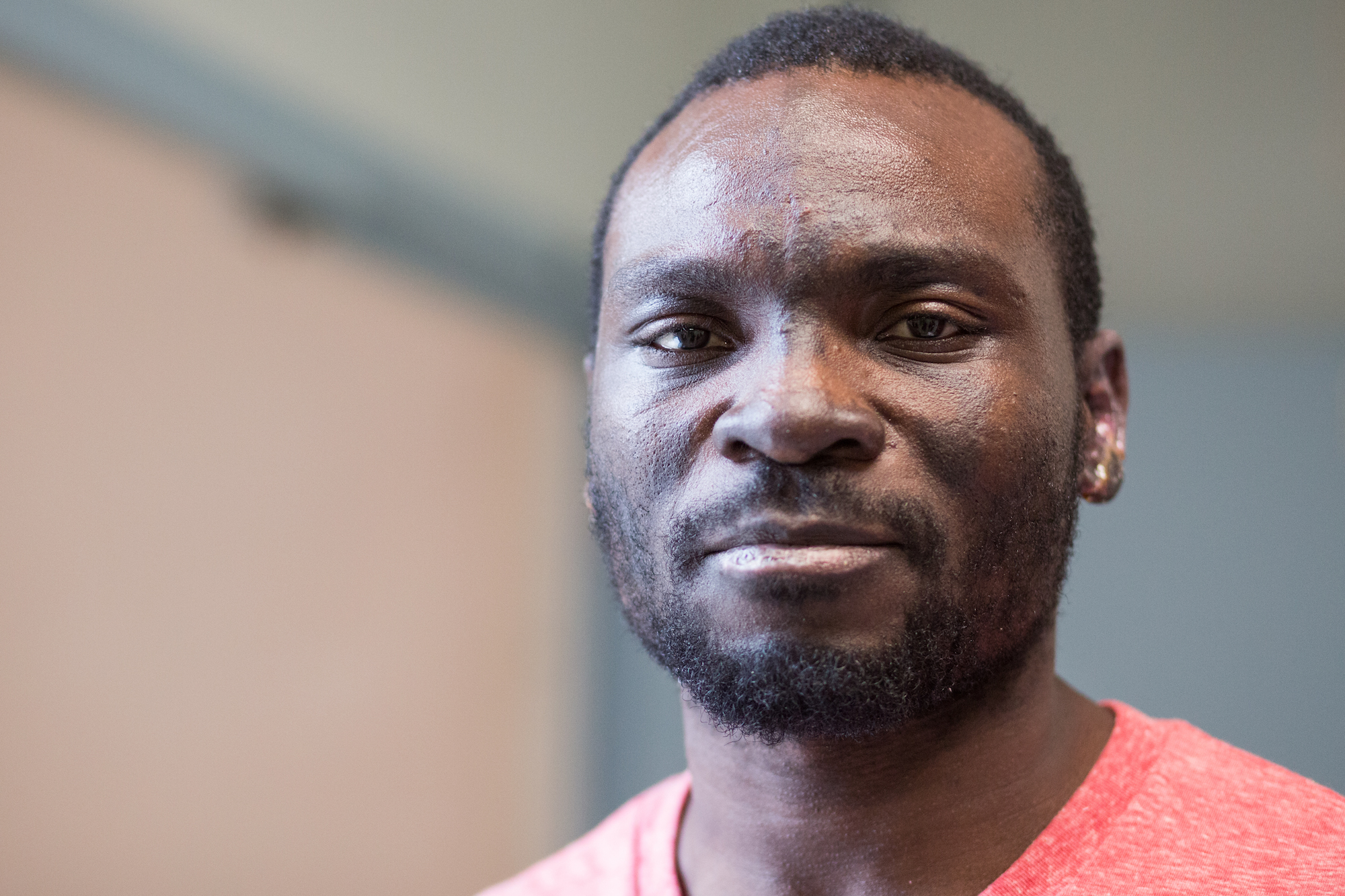 “They treat you like you’re nobody [in detention], like you’re not among people,” said Mohammad. “I don’t want to go back to see that kind of treatment, and that’s why I decided to go to Canada.”Over the past three years, according to figures provided by the Canada Border Services Agency, the number of refugee claimants crossing illegally between ports of entry near Emerson has gone up by five times, from 82 between April and December in 2013 to 430 during the same time period in 2016.While the CBSA guards the designated ports of entry, it’s the RCMP who are responsible for the stretch of border in between.In a headline-making case in the summer of 2015, Yahya Samatar swam across the Red River from North Dakota to Manitoba to avoid being deported back to Somalia.“It hasn’t just started, but there have been more cases coming to light now, and I believe it’s because of recent elections in the US… some of the rhetoric [Trump]he had prior to his election.” said Indome. “People are trying to seek refuge elsewhere, based on the fear that they might be rounded up and deported.”“If we can do this for Syrians, we can do the same for Africans seeking refuge. I don’t think it’s a big issue,” he added. “We have resources to offer these guys. They’re not here to beg. They’re here to work, pay their taxes, and do as other Canadian do.”Bashir Khan, an immigration lawyer who has taken on Mohammad and Iyal’s case and has represented a number of others who have crossed the border illegally near Emerson, said many who come through this route make their asylum claim elsewhere in the country, in places like Toronto and Manitoba.
“They treat you like you’re nobody [in detention], like you’re not among people,” said Mohammad. “I don’t want to go back to see that kind of treatment, and that’s why I decided to go to Canada.”Over the past three years, according to figures provided by the Canada Border Services Agency, the number of refugee claimants crossing illegally between ports of entry near Emerson has gone up by five times, from 82 between April and December in 2013 to 430 during the same time period in 2016.While the CBSA guards the designated ports of entry, it’s the RCMP who are responsible for the stretch of border in between.In a headline-making case in the summer of 2015, Yahya Samatar swam across the Red River from North Dakota to Manitoba to avoid being deported back to Somalia.“It hasn’t just started, but there have been more cases coming to light now, and I believe it’s because of recent elections in the US… some of the rhetoric [Trump]he had prior to his election.” said Indome. “People are trying to seek refuge elsewhere, based on the fear that they might be rounded up and deported.”“If we can do this for Syrians, we can do the same for Africans seeking refuge. I don’t think it’s a big issue,” he added. “We have resources to offer these guys. They’re not here to beg. They’re here to work, pay their taxes, and do as other Canadian do.”Bashir Khan, an immigration lawyer who has taken on Mohammad and Iyal’s case and has represented a number of others who have crossed the border illegally near Emerson, said many who come through this route make their asylum claim elsewhere in the country, in places like Toronto and Manitoba.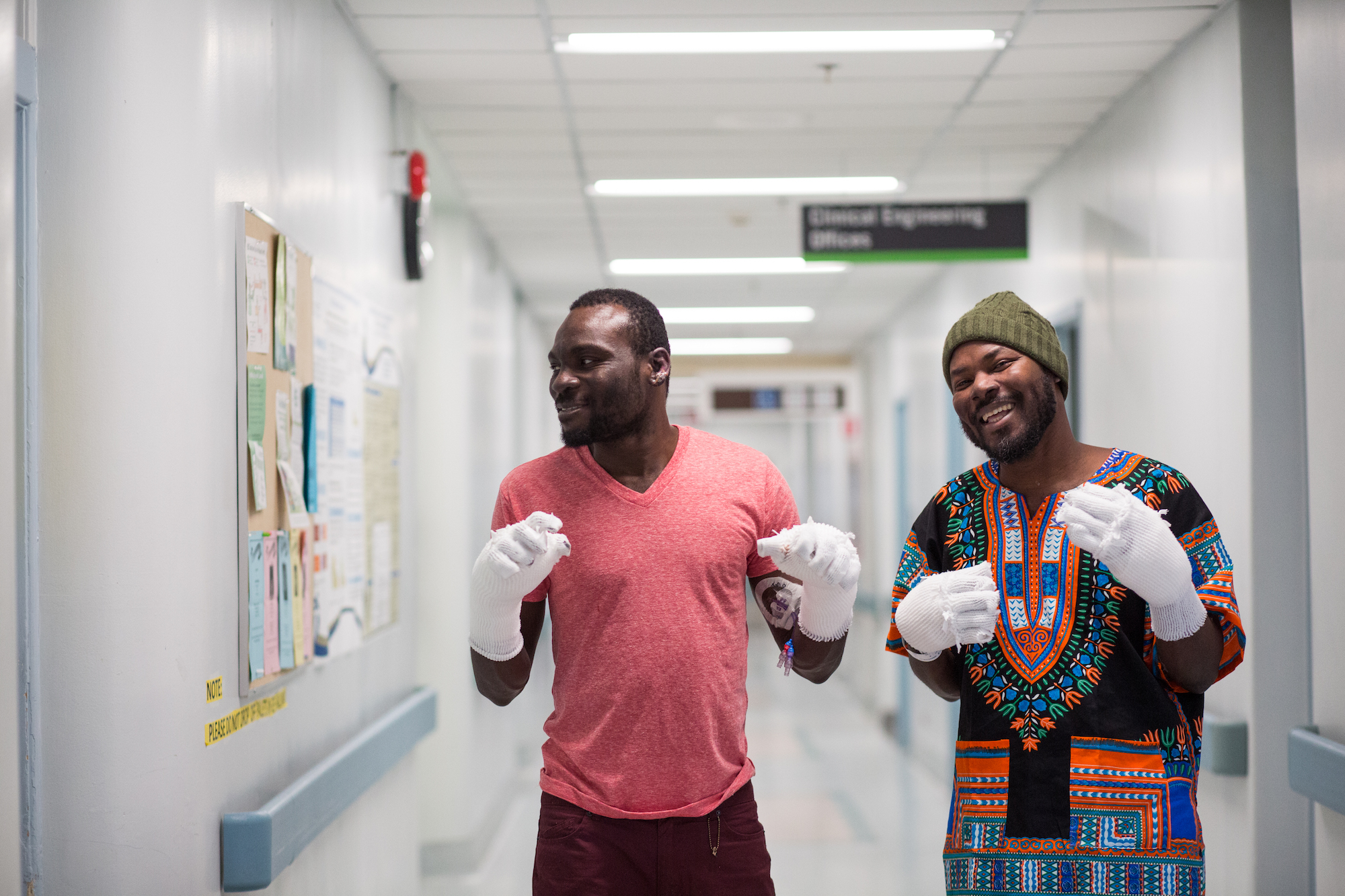 Most of these people, according to CBSA, are originally from Somalia.In Khan’s experience, most of these claimants enter the US from Mexico about a year and a half before crossing into Canada. They’re often placed in immigration detention all over the US and don’t get a fair chance to present their asylum claims, he said. Most are unable to contact their families in West Africa, don’t get access to proper legal counsel, and depend on their own limited language skills or other immigrant detainees to fill out their paperwork, having arrived with nothing but the clothes on their back, said Khan.“After they’ve had their hearing and had their asylum claims heard and denied, and are released in order to be deported, that’s when they make their way into Canada,” he said.
Most of these people, according to CBSA, are originally from Somalia.In Khan’s experience, most of these claimants enter the US from Mexico about a year and a half before crossing into Canada. They’re often placed in immigration detention all over the US and don’t get a fair chance to present their asylum claims, he said. Most are unable to contact their families in West Africa, don’t get access to proper legal counsel, and depend on their own limited language skills or other immigrant detainees to fill out their paperwork, having arrived with nothing but the clothes on their back, said Khan.“After they’ve had their hearing and had their asylum claims heard and denied, and are released in order to be deported, that’s when they make their way into Canada,” he said. “If there’s a policy that could reduce the risk to refugees coming into Canada, it would be to scrap the Canada-US Safe Third Country Agreement,” he said. “Scrap it completely. Don’t have it there because it’s forcing these people who are really afraid of returning to torture or death in their home country to go through the field because then that agreement doesn’t apply.”According to the agreement, which came into effect in 2002, refugee claimants must seek asylum in their first country of arrival.“If you apply at a border crossing where there’s a checkpoint, the Canadian authorities will turn you around and send you back to the US,” Khan explained. “It doesn’t matter if you’re seeking asylum and the US has rejected you already. And of course, the US authorities will arrest you because you’re trying to flee to somewhere they don’t want to deport you to.”
“If there’s a policy that could reduce the risk to refugees coming into Canada, it would be to scrap the Canada-US Safe Third Country Agreement,” he said. “Scrap it completely. Don’t have it there because it’s forcing these people who are really afraid of returning to torture or death in their home country to go through the field because then that agreement doesn’t apply.”According to the agreement, which came into effect in 2002, refugee claimants must seek asylum in their first country of arrival.“If you apply at a border crossing where there’s a checkpoint, the Canadian authorities will turn you around and send you back to the US,” Khan explained. “It doesn’t matter if you’re seeking asylum and the US has rejected you already. And of course, the US authorities will arrest you because you’re trying to flee to somewhere they don’t want to deport you to.”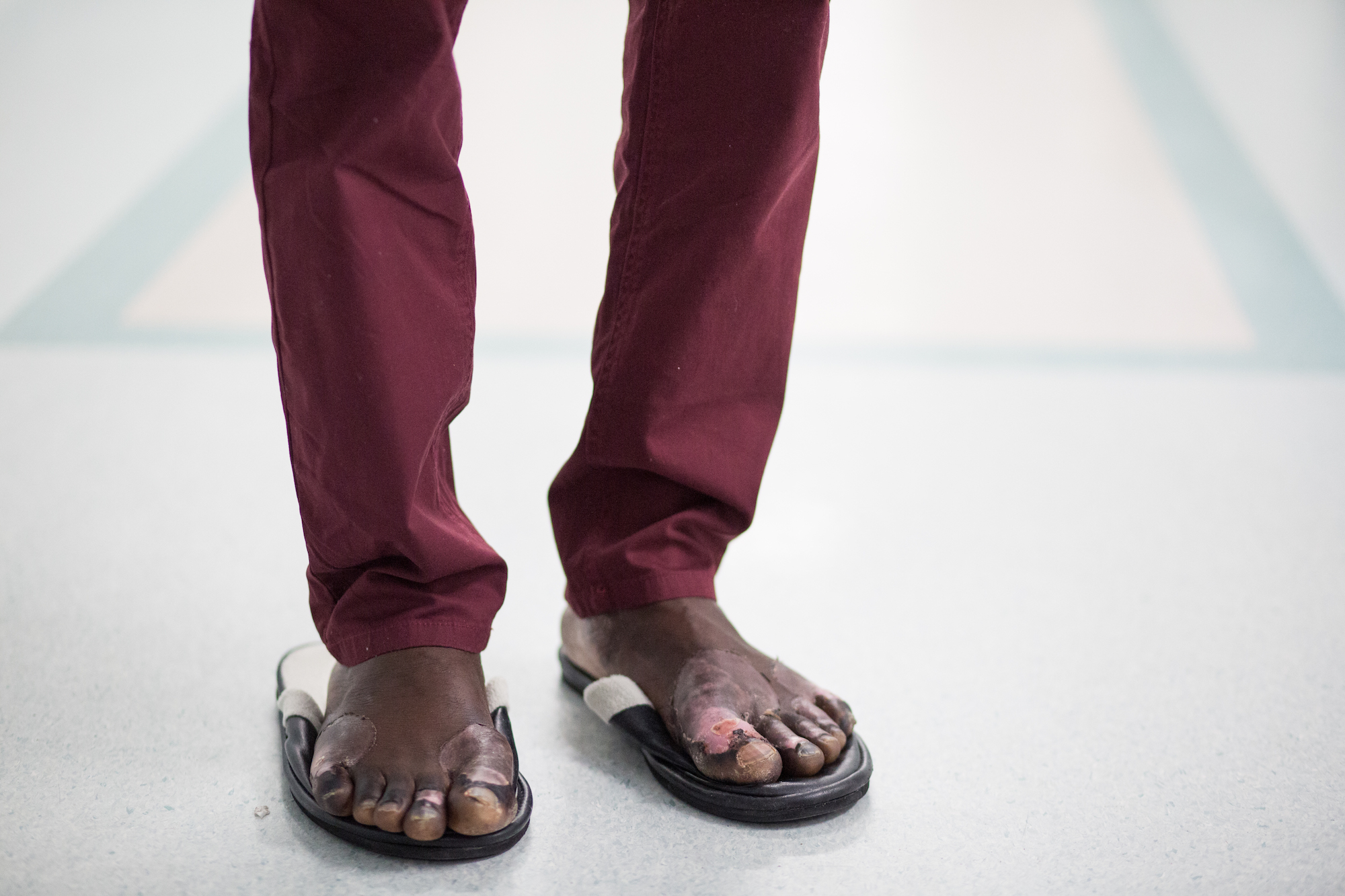 “This desperation is the driving force. They don’t even get a fair opportunity to present their case, and Canada is far more human rights savvy in this regard, it does give them a chance to put their case forward.”All photos by Caroline Wintoniw
“This desperation is the driving force. They don’t even get a fair opportunity to present their case, and Canada is far more human rights savvy in this regard, it does give them a chance to put their case forward.”All photos by Caroline Wintoniw

Advertisement

Advertisement

Frank Indome, president of the Ghanaian Union of Manitoba which is now helping Mohammad and Razak get settled, also recalled two elderly Eritrian women whose refugee claims were dismissed in the US walking across the border last summer.“If we can do this for Syrians, we can do the same for Africans seeking refuge.”
Advertisement

Advertisement

